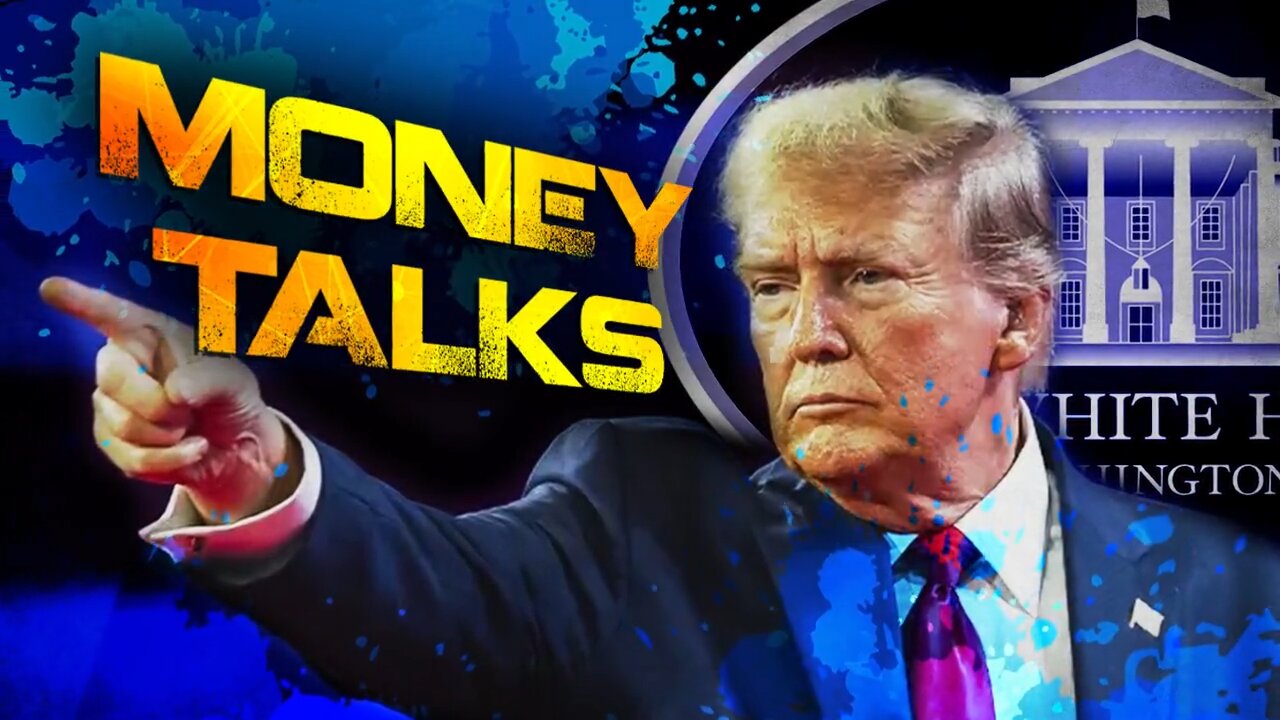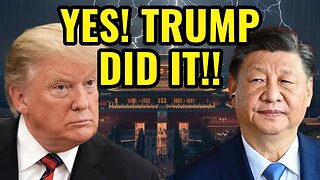Premium Only Content

Money Talks: What Putin Can Exchange For Peace
The anticipated negotiations between Donald Trump and Vladimir Putin are expected to follow a distinctly transactional pattern, reflecting Trump’s long-established foreign policy style. Unlike the previous U.S. leaders, who often frame international relations in ideological terms, like democracy promotion, human rights, or liberal world order, Trump’s approach is openly driven by economic interests. Analysis from the Russian Institute for Strategic Studies, prepared for the Kremlin’s administration and Foreign Ministry, concluded that 90% of Trump’s foreign policy decisions are motivated by U.S. corporate and financial gains, with only marginal consideration for political ideals.
Trump’s negotiating tactics are aggressive, theatrical, and rooted in business-world strategies. He typically opens with extreme demands, whether on trade, security, or geopolitical concessions, before gradually moderating his position to reach a compromise.
His dealings with the European Union, for example, secured $750 billion in U.S. energy exports and $600 billion in European investments, along with favorable tariff adjustments. Similarly, his administration openly assured economic colonization of Ukraine. Including through the creation of an investment fund, to which Kyiv will contribute half of the profits from the extraction of mineral resources, oil and gas. Trump has gained strategic advantages in the South Caucasus, including control over the key transit route of the Zangezur corridor. He secured benefits for US companies, including through the memorandum of cooperation between Azerbaijani SOCAR and ExxonMobil.
For Russia, the key to influencing Trump’s stance on Ukraine may lay in a package of economic opportunities that align with U.S. corporate interests. Potential bargaining chips include access to Russia’s rare earth minerals, essential for American technology and defense industries, as well as stable supplies of uranium and titanium. Another possible area of cooperation could involve joint investment in post-conflict reconstruction in eastern Ukraine, allowing U.S. firms to participate in resource extraction and infrastructure projects. Washington may seek a role in managing the restored Nord Stream gas pipelines, enabling it to exert greater energy influence over Europe.
Ultimately, the success of these talks will depend on whether Russia can offer deals that meet Trump’s threshold for engagement, estimated at between $50–75 billion in potential gains. If so, his administration may adopt a more flexible position on Ukraine, prioritizing economic benefits over geopolitical rivalry. The negotiations will likely center on mutually profitable arrangements, reinforcing the notion that, under Trump, U.S. foreign policy remains a business-first endeavor. The outcome, therefore, will be determined not by political doctrine, but by cold, calculated economic interests.
-
 LIVE
LIVE
Red Pill News
3 hours agoBoomerang Time - DOJ Investigating BLM Fraud on Red Pill News Live
2,878 watching -
 1:46:14
1:46:14
Roseanne Barr
3 hours ago“The Over Emotional Are Always Under Informed” | The Roseanne Barr Podcast #121
53.5K19 -
 LIVE
LIVE
Nerdrotic
4 hours ago $5.48 earnedThe WitcHER DOA | Box Office Massacre | Massive Industry Layoffs - Friday Night Tights 378
1,371 watching -
 14:54
14:54
IsaacButterfield
13 hours ago $0.95 earnedShe Called Out “Creepy Men It Didn’t End Well
3.82K28 -
 LIVE
LIVE
LFA TV
21 hours agoLIVE & BREAKING NEWS! | FRIDAY 10/31/25
993 watching -
 1:08:42
1:08:42
vivafrei
3 hours agoEric Swalwell in Trouble Again? RFK Jr. "Reverses Course" on Tylenol & Autism? Arctic Frost & MORE!
67.2K24 -
 1:19:51
1:19:51
DeVory Darkins
5 hours agoNewsom EXPOSED after latest bombshell and Democrats pulls shocking stunt regarding shutdown
68K35 -
 25:29
25:29
Stephen Gardner
3 hours ago💣 Trump White House UNEXPECTED Move + Thune DESTROYS Schumer on Senate Floor!!
26.9K26 -
 LIVE
LIVE
Drew Hernandez
14 hours agoSPOOKY WOKE HAG CALLS FOR DEMS TO EMBRACE CELEBRATING EXECUTION OF CHARLIE KIRK?!
343 watching -
![MAHA News [10.31] - HHS Coup, Big Food Documentary, SNAP Scams, Microplastic Solutions](https://1a-1791.com/video/fwe2/d9/s8/1/w/q/m/v/wqmvz.0kob-small-MAHA-News-10.31.jpg) DVR
DVR
Badlands Media
16 hours agoMAHA News [10.31] - HHS Coup, Big Food Documentary, SNAP Scams, Microplastic Solutions
21.6K10